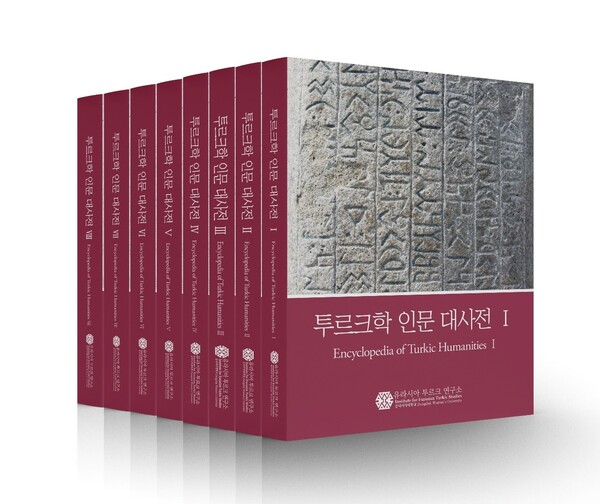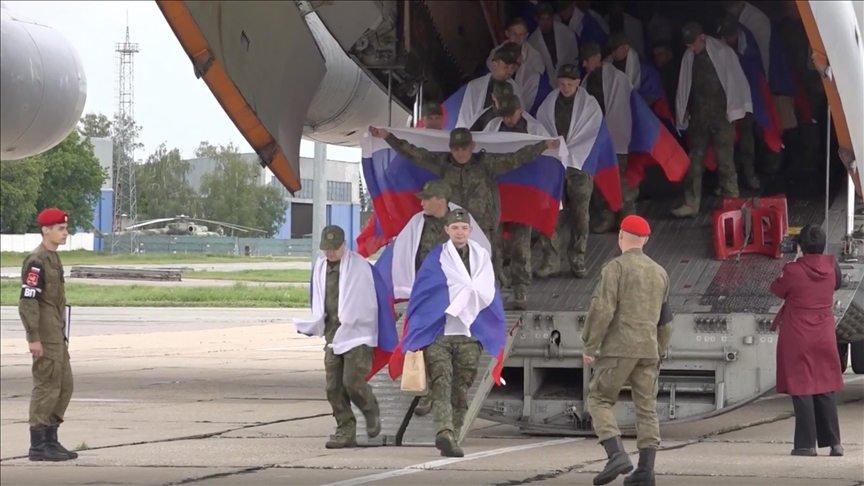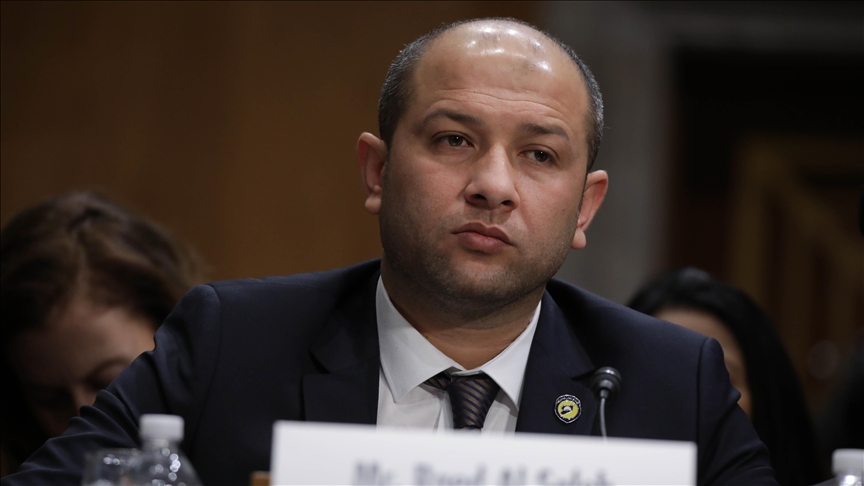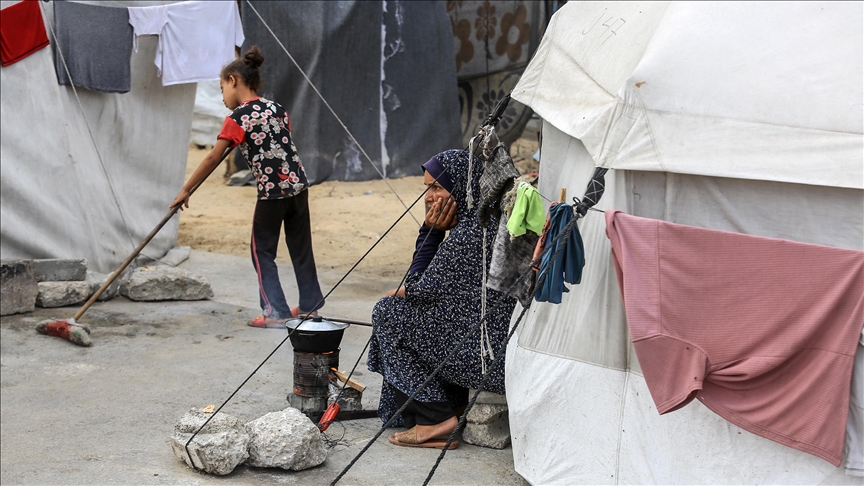President Yoon Seok-yeol will embark on a trip to three Central Asian countries. These three countries are all Turkic Belt countries, Ednews reprints.
Interview with IEPF co-operative Prof. Oh Eun-Kyung, Dongduk Women's University, main author of 'Encyclopedia of Turkic Humanities'
Q: You recently published the 'Encyclopedia of Turkic Studies and Humanities'. What kind of dictionary is it?
A: 'Encyclopedia of Turkic Humanities' is a dictionary that organizes and compiles major concepts in all areas of humanities necessary for understanding Turkology. 'Encyclopedia of Turkic Humanities' is the result of a basic research project conducted by the Institute for Eurasian Turkic Studies of Dongduk Women's University over the past five years (August 2018 to June 2023) with support from the National Research Foundation of Korea. The areas of Turkic humanities covered in this dictionary are diverse, ranging from language, literature, history, art, geography, folklore, and religion. This dictionary, which is published and distributed as a paper book and PDF e-book, contains as many as 8 volumes with over 2,000 entries. It is a huge volume of material consisting of a total of 4,500 pages.
Q: Publishing a dictionary is not an easy task, but was the 'Encyclopedia of Turkic Studies and Humanities really necessary for Korean society to the extent that you had to endure such difficulties to create it?
A: The humanities of the ‘Turkish Belt’ countries are important not only in terms of academic value, but also geopolitically and geoeconomically. However, in our country, it is still difficult for the general public to even acquire basic knowledge about Turkic countries. In order to improve this situation, I think that, above all, we need a ‘Turkish studies’ humanities dictionary that is accessible to Turkic studies and related humanities fields.
Q: Is there a humanistic significance that Korea should pay attention to in the Turkic countries?
A: South Korea is closer to the Turkic Belt countries in linguistic and cultural coordinates than any other ethnic group. It is based on so-called affinity. Therefore, it is essential to expand and strengthen humanities research in this region in order to expand the consensus of mutual understanding by identifying cultural interconnections and linguistic and cultural affinity with the Turkic countries of Eurasia. I believe that it will become an important national asset if we strengthen the cultural bond between the origins of Korean culture and the Turkic countries of Eurasia on the Silk Road and use this as a basis for political and economic exchange. In addition, these are countries that have the assets to cope with the conflict between the United States and China as well as historical and cultural conflicts with China.
Q: What should Korea pay attention to when interacting with Turkey and other Turkic countries in the political and economic fields?
A: The future value is so infinite that it can be said to be the last market that Korea can explore. Nevertheless, the reality is that research on the domestic Turkic people or Turkic countries is not being conducted as actively as needed. There were not enough experts capable of conducting research. There are not many talented people who can play on the field.
In this reality, the Turkic countries are very important political and economic partners for Korea. In particular, since the inauguration of the Biden administration, the United States has been in a very sensitive confrontation with Russia and China. At a time like this, Korea needs to turn its attention to the Turkic countries of Central Asia. This is because the tense situation with Russia and China could actually be a greater opportunity for advancing into the Turkic countries of Central Asia. The Biden administration's accession to the climate agreement and carbon neutrality policy have changed the paradigm around the world. The introduction of a carbon border tax has become a critical threat to the survival of companies and countries. With renewable energy and new green policies, large domestic companies are racing to dominate advanced markets such as the United States. Central Asian countries are not only resource-possessing countries, but also have a natural environment perfect for producing renewable energy such as wind and solar energy. And in the case of automobiles, the president of Uzbekistan announced plans to convert automobile production lines to electric vehicle lines. Korean companies need to take the lead by using this environment as momentum.
In particular, the Biden administration has created “C5+1” as a way to diversify cooperation channels and is paying great attention to Central Asia. By taking advantage of this atmosphere, it appears that the influence of the United States can increase in Central Asian countries as well. Turkic countries depend on major investors Russia and China for much of their economy. In both countries, the public sentiment has historically not been very positive, and they want to maintain some distance from each other if possible. Through this gap, Turkey has begun to infiltrate to a large extent, and is also exerting a powerful, invisible influence. However, there are areas where T?rkiye's technological capabilities fall short. Korean companies are eager to enter and invest in fields such as energy, automobiles, smart farms, healthcare, blockchain, and digitalization of industries that require significant technological capabilities.
Politically, the Turkic countries are countries that can unconditionally take South Korea's side on the international stage. In a situation where Korea needs “votes” due to the flow of the international situation, I can be on my side unconditionally. In the event that China causes a crisis or conflict situation, such as the THAAD retaliation in the past, a card can be created to pressure China by persuading the Turkic countries. One more thing, there are Korean compatriots living in the Turkic countries of Central Asia, including 180,000 in Uzbekistan and 100,000 in Kazakhstan. Korean Diaspora are generally people who have relatives living in North Korea and can travel freely to North Korea. “Koryoin(Korean Diaspora)” are also an important human resource that can play a significant role in conflict situations between North and South Korea.
As such, they are countries with high future value for Korea in many fields. However, above all, the source of such cooperation and friendly relations should be seen as deriving from the results accumulated historically and culturally in multiple layers. This is why the study of the Turkic state should be based on the humanities, but should be expanded to include politics, economy, diplomacy and security measures.
Q: You said that there is an urgent need to train experts related to Turkic countries in Korea. What measures are needed?
A: I think it will be difficult for Korea's relationship with Turkic countries, including Central Asia, to develop unless the Korean government takes special measures to foster experts in Turkic countries. We cannot think about the future without training talented individuals and experts.
Above all, the university system must be reformed. Recently, domestic universities are expanding the second major and minor system in addition to the first major. ‘Microdegree courses’ are also emerging. In order to train experts in the Turkic state, we must actively utilize this system. This is a plan to train experts by creating an expert course that combines one’s major with Turkic studies.
Q: Do you have any advice for developing relations with Turkey and other Turkic countries in the future?
A: There is a need to create institutions and systems to enable sustainable cooperation with Turkic countries.
First of all, a plan to cultivate experts and talent is urgently needed. We must actively seek ways to open a Turkic department and foster key universities. The human exchange and talent development measures currently being promoted by the Korean government are entirely focused on supporting Korean studies and the Korean language in Central Asian countries or providing study abroad opportunities by attracting local government officials and students to Korea. For this reason, the gap in domestic Korean Turk Belt country experts is becoming increasingly serious. As a solution to this problem, it is urgent to establish projects and funds to foster key universities and encourage the opening of Turkic departments. Currently, there is a special foreign language education promotion project implemented by the National Institute for International Education of the Ministry of Education, but it is not aimed at encouraging the opening of foreign language courses in a piecemeal manner. There is an urgent need to open departments in the form of convergence or interdisciplinary majors and to cultivate talent with both expertise in the major and regional expertise. There is a need to establish a fund related to the establishment of Turkic studies at the National Research Foundation of Korea under the Ministry of Education and prepare a plan to foster key universities.
Second, it is necessary for the Korean government to join the “Organization of Turkic States” as an associate member. The OTS is “a council of Turkic-speaking countries.” Established in 2010, it is currently strengthening cooperation in all areas including politics, economy, society, culture, education, trade, transportation, and logistics among Turkic countries. Turkey, Azerbaijan, Uzbekistan, Kazakhstan, and Kyrgyzstan are full members, and Turkmenistan and Hungary are associate members.
As the conflict between the U.S. and China is deepening, Korea also needs to secure various cooperation channels. In particular, the Turkic countries have cultural affinity with us, and geopolitically, they include the Caucasus region, which connects Asia and Europe, and occupy a significant portion of the Eurasian continent. It is expected that the completion of the network with the Eurasian continent can be expected by actively seeking opportunities to build an economic and cultural cooperation network, such as expanding the entry of Korean companies through participation in the Turkic Council.
Third, although projects between Turkey and Korea are important, multilateral cooperation projects and systems between Turkic countries are needed. Even for large companies pursuing B2B projects, it is not easy to properly carry out the project without cooperation and help from the government. Therefore, a special organization called “Korea-Turkic Economic Cooperation Center (tentative name)” must be established to provide consulting and solutions to corporate problems at any time. However, this organization must be established equally in each Turkic country and must be organized so that a connection channel up to the prime minister can be secured.











